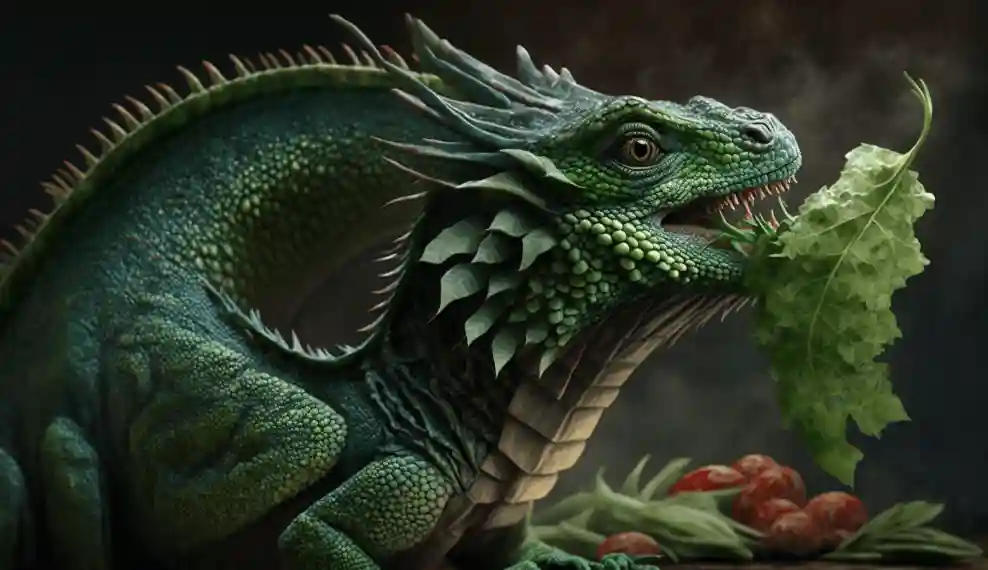If you own a bearded dragon, you might wonder what kind of beans you can feed them as a treat. Beans are a diverse group of legumes that come in different shapes, sizes, and colors.
Some beans are safe and beneficial for bearded dragons, while others are toxic or unhealthy. In this guide, we will focus on green beans, which are one of the most common and popular types of beans for humans and pets alike.
Green beans are long pods that contain small seeds inside. They are also known as string beans or snap beans. Green beans are rich in vitamins A, C, and K, folic acid, fiber, calcium, iron, magnesium, potassium, and protein.
They have a balanced calcium-to-phosphorus ratio of 1:1, which means they do not interfere with calcium absorption in bearded dragons. However, they also contain moderate amounts of oxalates, which can bind to calcium and reduce its availability. Therefore, green beans should not be fed daily or in large quantities to bearded dragons.
Bearded dragons can eat green beans as long as they are fresh and raw. Cooked green beans may lose some of their nutrients or have added ingredients that can harm your pet. Frozen green beans may have preservatives or additives that can cause digestive issues. Canned green beans may have too much sodium or sugar that can affect your pet’s health. Therefore, it is best to avoid these forms of green beans and stick to fresh ones.
To prepare green beans for your bearded dragon, you should wash them thoroughly under running water and remove any dirt or pesticides. You should also peel off the outer skin and cut off the ends of the pods.
Then you should chop them into small pieces that your pet can easily swallow without choking. You can mix them with other vegetables such as dark leafy greens, papaya, figs, or acorn squash, which are high in calcium and low in oxalates. You can offer green beans once or twice a week as part of a varied diet for your bearded dragon.
Green beans are a healthy snack for bearded dragons if fed properly. They provide many essential nutrients and have a good texture and flavor that your pet will enjoy. However, they also have some drawbacks that you need to be aware of. By following this guide, you can ensure that your bearded dragon gets the best out of this vegetable without any risks.
What Types Of Beans Can A Bearded Dragon Safely Eat?
Bearded dragons are popular pets for reptile enthusiasts, but they have some special dietary needs that owners should be aware of. Bearded dragons are omnivorous, meaning they eat both plant and animal matter. They need a balanced diet of insects, vegetables, fruits, and occasionally some other foods to stay healthy and happy.
One of the foods that some bearded dragon owners may wonder about is beans. Beans are legumes that come in many varieties and colors, such as green beans, black beans, kidney beans, pinto beans, etc. Beans are rich in protein, fiber, vitamins, minerals, and antioxidants. But can bearded dragons eat beans? And if so, what types of beans are safe for them?
The answer is yes and no. Bearded dragons can eat some types of beans as occasional treats or supplements to their diet, but not all types of beans are suitable for them. Some beans may contain substances that are toxic or harmful to bearded dragons or may cause digestive issues if fed too often or too much.
In this article, we will discuss what types of beans can bearded dragons eat safely and how to prepare them properly.
Green Beans – Green beans are one of the safest types of beans for bearded dragons to eat. They are also known as string beans or snap beans and have a green pod with small seeds inside. Green beans are low in fat and sugar but high in fiber, vitamin A, vitamin C, vitamin K, calcium, iron, magnesium, potassium, and folate. Bearded dragons can safely eat green beans daily as part of a balanced diet.
Black Beans – Black beans are another type of legume that has black skin and creamy white flesh. They are high in protein, fiber, iron, folate, manganese, and antioxidants. However, they also contain lectins and phytates which can interfere with nutrient absorption and digestion in bearded dragons.
Lentils – Lentils are another type of legume that is small, round, and green. They are high in fiber, protein, B vitamins, zinc, iron, and magnesium. Lentils are a great source of nutrition for bearded dragons, but they should not be fed more than once or twice a week.
Peas – Peas are a type of legume that have a green, round pod with small seeds inside. Peas are high in fiber, protein, vitamin A, vitamin C, vitamin K, and folate. They are safe for bearded dragons to eat but should be fed in moderation.
Chickpeas – Chickpeas, also known as garbanzo beans, are a type of legume that is light brown in color and have a nutty flavor. They are high in protein, fiber, folate, iron, and zinc. Bearded dragons can safely eat chickpeas in moderation.
Lima Beans – Lima beans are a type of legume that have white flesh and a flat, green pod. They are high in fiber, protein, iron, manganese, and other minerals. Bearded dragons can benefit from the nutrients in lima beans, but should be fed in moderation due to their high starch content. Lima beans should be cooked before being fed to bearded dragons as they can cause digestive issues when eaten raw.
Kidney Beans – Kidney beans are a type of legume that is dark red in color and have a kidney-shaped pod. They are high in protein, fiber, folate, iron, and other minerals. Kidney beans can be a beneficial part of a bearded dragon’s diet, but owners should be careful to never feed them raw as they contain toxic lectins that can be harmful to bearded dragons when consumed.
Benefits Of Feeding Beans To Bearded Dragons
Bearded dragons are a type of lizard that can be found in the wild in Australia. They are popular pet, and feeding them the right type of food is essential for their health and well-being. Beans are a great food for bearded dragons, providing them with essential nutrients and vitamins.
In fact, studies have shown that feeding beans to bearded dragons can help to improve their overall health, providing numerous benefits.
So, let’s explore the advantages of feeding beans to bearded dragons in more detail.
- High in dietary fiber – Beans are a great source of dietary fiber which helps to maintain a healthy digestive system.
- High in protein – Beans are very high in protein, making them a great source of nutrition for bearded dragons.
- Low in fat – Beans are low in fat, which is beneficial for bearded dragons since they are prone to obesity.
- Rich in vitamins and minerals – Beans are a great source of vitamins and minerals, including folate, magnesium, and iron.
- High in antioxidants – Antioxidants help to reduce inflammation and fight off free radicals, which can be beneficial for bearded dragons.
- Stimulate appetite – Beans can help stimulate a bearded dragon’s appetite, which is important for overall health.
- Provide variety in the diet – Beans can help provide variety in a bearded dragon’s diet and can help create a more balanced diet.
- Easy to prepare – Beans are easy to prepare and can be a great source of nutrition when feeding a bearded dragon.
- Affordable – Beans are affordable and can be a great option for those on a budget.
- Promotes healthy skin and coat – Beans are a great source of nutrition that can help promote healthy skin and coats in bearded dragons.
Risks of Feeding Too Many Beans To Bearded Dragons
Bearded dragons are one of the most popular lizards that people keep as pets. But did you know that feeding them too many beans can be dangerous? Beans may seem like a healthy and nutritious snack for your bearded dragon, but there are some risks to consider before giving them too much.
Let’s discuss the risks of feeding too many beans to your bearded dragon.
- Impaction: Bearded dragons have very delicate digestive systems, so it is important to feed them a varied diet that is high in protein and low in carbohydrates. Too many beans in the diet can lead to impaction, which is a serious condition in which the digestive system is blocked.
- Weight Gain: Beans are high in carbohydrates, so if your bearded dragon is eating too many beans, it can lead to weight gain, which can be detrimental to your dragon’s health and well-being.
- Gas: Eating too many beans can cause excessive gas and bloating in your dragon, which can be uncomfortable and lead to further health complications.
- Nutritional Deficiencies: A diet that is high in beans and low in other necessary nutrients can lead to nutritional deficiencies, which can cause health problems and can even be life-threatening.
- Increase in Shedding: Eating too many beans can cause an increase in shedding, which can be uncomfortable and can lead to further skin problems.
- Indigestion: Eating too many beans can cause indigestion and other digestive issues, which can be painful and lead to further health complications.
- Diarrhea: Eating too many beans can cause diarrhea, which can be uncomfortable and can lead to dehydration.
- Intestinal Parasites: Eating too many beans can increase the risk of your dragon developing intestinal parasites, which can be difficult to treat and can cause serious health complications.
- Vomiting: Eating too many beans can cause vomiting, which can be uncomfortable and can lead to further digestive problems.
- Impaired Immune System: Eating too many beans can impair your dragon’s immune system, making them more susceptible to diseases and illnesses.
How to Properly Prepare and Serve Beans To a Bearded Dragon?
Bearded dragons are an incredibly popular pet reptile that require a very specific diet. One of the key components of the diet is beans, which provide the dragon with protein, minerals, and vitamins to stay healthy.
But preparing and serving beans to a bearded dragon isn’t as easy as it sounds – it requires a few extra steps to make sure they are safe and nutritious. Here’s how to properly prepare and serve beans to a bearded dragon:
- First, obtain a variety of beans such as wax beans, green beans, lima beans, and pinto beans. Wash and rinse the beans thoroughly to remove any dirt or debris.
- Cut the beans into small pieces and blanch them in boiling water for 5-10 minutes to soften them.
- Once the beans are blanched, strain them and rinse in cold water to cool them down.
- Place the beans in a shallow dish and serve to your bearded dragon.
- Monitor your dragon while they eat the beans to make sure they are not choking or having difficulty eating them.
- Remove any uneaten beans after your dragon is finished eating.
Proper Amounts Of Beans To Feed a Bearded Dragon
A proper amount of beans to feed to a bearded dragon depends on the size of the dragon and its age. Generally, it is recommended that young dragons under the age of 6 months should be fed no more than 1/4 teaspoon of beans per feeding. Adult dragons can be fed up to 1/2 teaspoon of beans per feeding.
It is important to remember that beans should only make up a small portion of a bearded dragon’s diet. The majority of their diet should consist of insects and other fresh vegetables and fruits.
Feeding Beans: Which One They Can Eat Actually?
can bearded dragons eat bean leaves?
No, bearded dragons should not eat bean leaves. These leaves are not part of a beardie’s natural diet and can cause digestive problems.
Bearded dragons should not be given any type of beans, including green beans, as they can be difficult to digest and can cause digestive issues. In general, the best diet for a bearded dragon consists of a variety of fresh vegetables and occasional insects, such as crickets or mealworms.
Can bearded dragons eat lima beans?
No, bearded dragons should not eat lima beans. They are high in phosphorus and are not a nutritious food for bearded dragons.
Bearded dragons should instead be fed a variety of insects and vegetables. They should have a diet that consists of calcium-rich foods, like leafy greens, and insects, such as crickets and mealworms.
can bearded dragons eat black beans?
No, bearded dragons should not eat black beans. These reptiles are insectivores, meaning they should be fed an insect-based diet. Black beans are not an appropriate food for bearded dragons.
Bearded dragons require a diet that is high in calcium and protein and low in fat and carbohydrates. Insects such as crickets, mealworms, and waxworms are the primary protein sources for these animals.
can bearded dragons eat kidney beans?
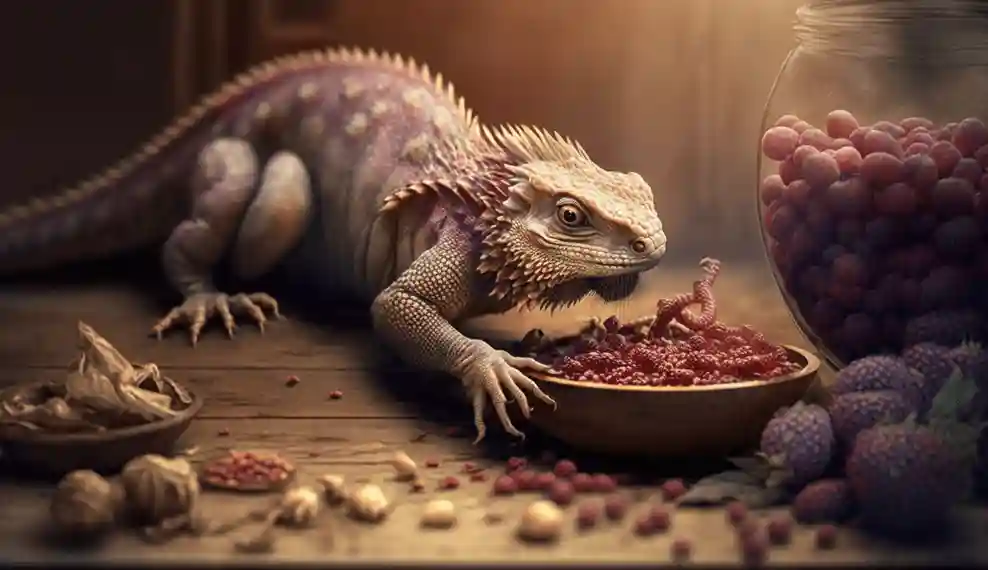
Yes, bearded dragons can eat kidney beans as they are a good source of protein and fiber. However, it is important to feed them in moderation as they contain high levels of phosphates and nitrogen which can be harmful to the dragon’s health if consumed in large amounts. It is also recommended to feed fresh kidney beans only and avoid cooked frozen or canned ones.
can bearded dragons eat garbanzo beans?
No, bearded dragons should not eat garbanzo beans. They are too high in phosphorus and can cause gastrointestinal problems.
Bearded dragons should be fed a diet of calcium-rich vegetables and fruits, as well as insects such as crickets and mealworms. They should also have access to quality, nutrient-rich commercial pellet food specifically made for bearded dragons.
can bearded dragons eat string beans?
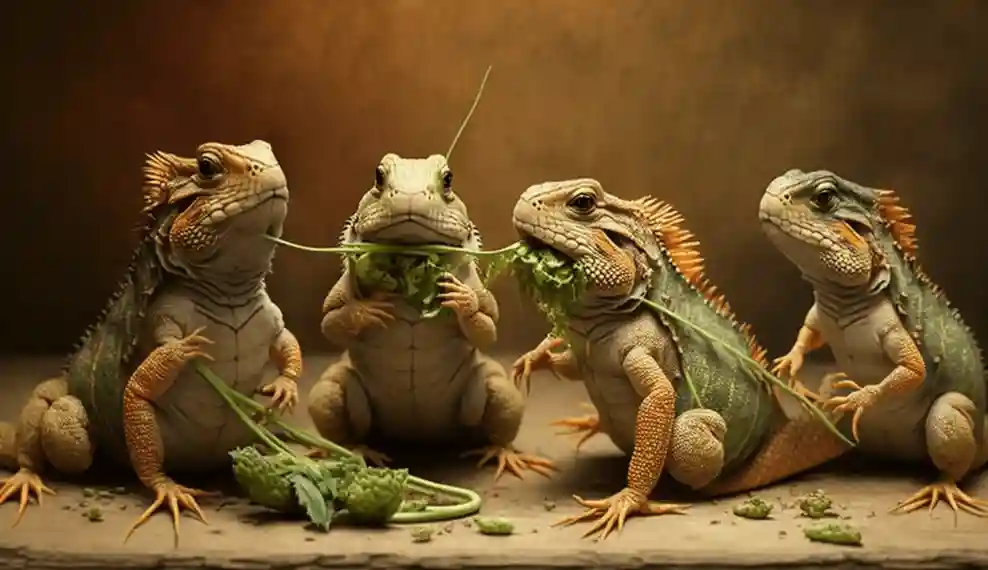
Yes, bearded dragons can eat green beans. They can eat raw or cooked green beans, but it is advisable to only feed them raw as cooking can cause the loss of nutrients and vitamins. Green beans are a healthy snack for bearded dragons and are a good source of beta-carotene and vitamin B. However, if you have long, stringy green beans, consider cutting them into smaller pieces before feeding your dragon to eliminate a potential choking hazard.
can bearded dragons eat baked beans?
Bearded dragons can eat beans, including baked beans, but it is important to prepare them correctly. According to some sources, cooked, frozen, and canned beans are not recommended for bearded dragons. However, other sources suggest that certain types of beans can be healthy for bearded dragons when fed in moderation. It is important to avoid any added ingredients or seasonings when feeding green beans or other vegetables to your bearded dragon.
can bearded dragons eat broad beans?
No, bearded dragons should not eat broad beans. These beans contain a substance called L-canavanine which can be toxic to these lizards.
Bearded dragons should not be fed any type of legume, including broad beans. They are omnivores, so a diet of greens, fruits, and insects should be provided to them instead.
can bearded dragons eat cooked beans?
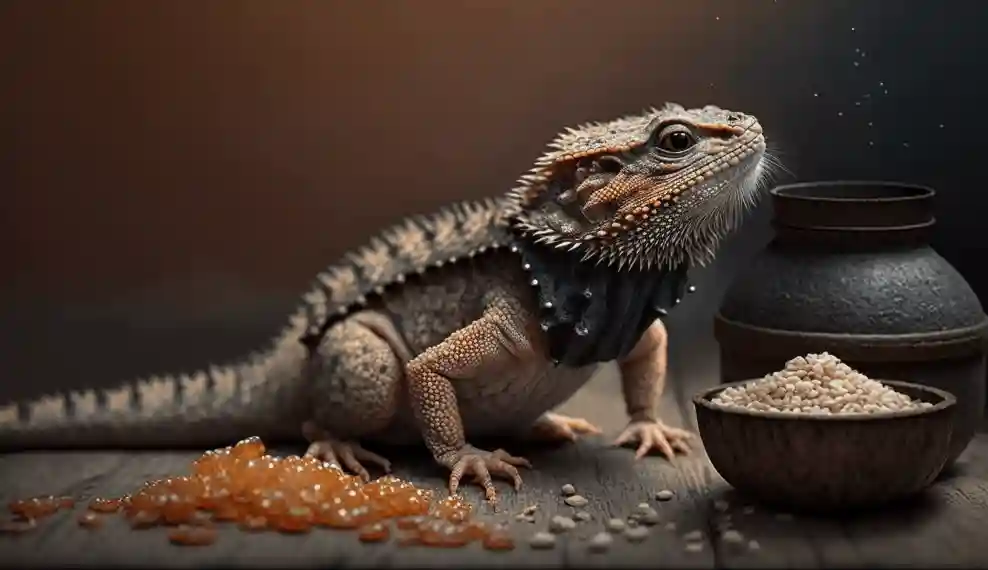
Bearded dragons can eat cooked green beans, but it’s better to keep it to a minimum and make sure there are no added ingredients like oil or spice that can make them sick. However, it is advisable to only feed them raw green beans as cooking can cause the nutrients and vitamins to be lost. Green beans are generally safe for bearded dragons as long as they are free from any fertilizer or pesticide residue.
can bearded dragons eat canned green beans?
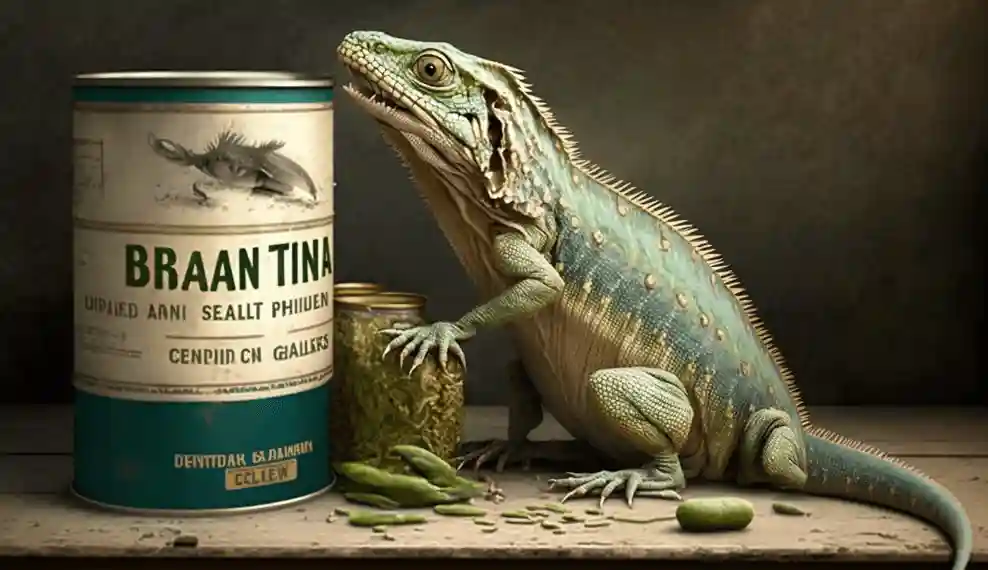
Bearded dragons can eat green beans, including canned green beans. However, it is important to ensure that canned green beans are free from preservatives and other harmful chemicals. While fresh or frozen green beans are preferred, canned green beans can be fed to bearded dragons as long as they are chopped into small pieces.
can bearded dragons eat pinto beans?
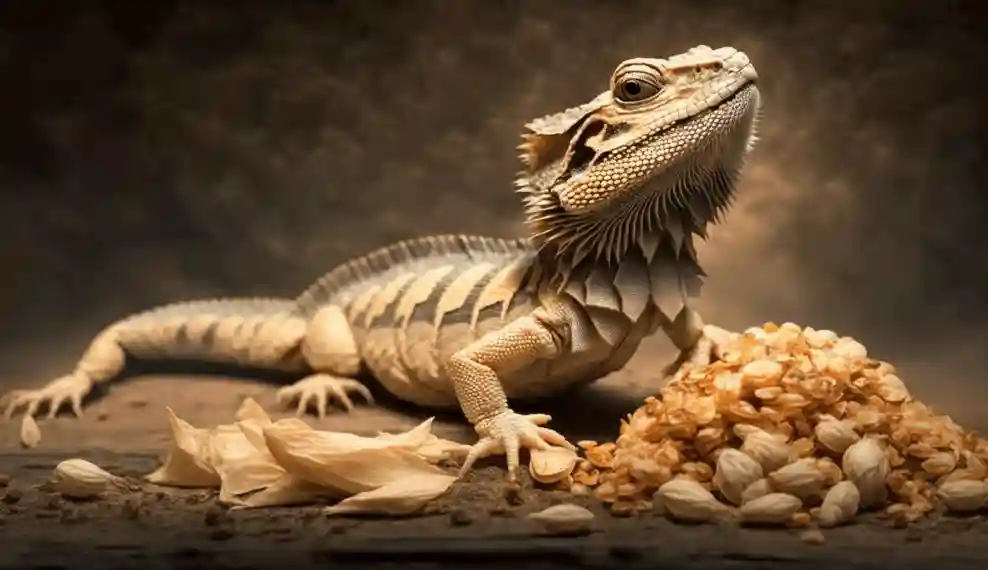
Yes, bearded dragons can eat pinto beans as they are safe for them to consume. However, it is important to note that beans should not be a staple in their diet and should only be given occasionally as a treat. It is also recommended to feed them cooked beans instead of raw ones.
can bearded dragons eat edamame beans?
No, bearded dragons should not eat edamame beans. It is best to avoid feeding them any type of legumes as they are difficult to digest and may cause digestive issues.
Bearded dragons should be fed a diet that is high in protein and low in fat. Insects such as crickets, mealworms, and waxworms are all good options, as well as vegetables like collard greens, mustard greens, and dandelion greens.
can bearded dragons eat French beans?
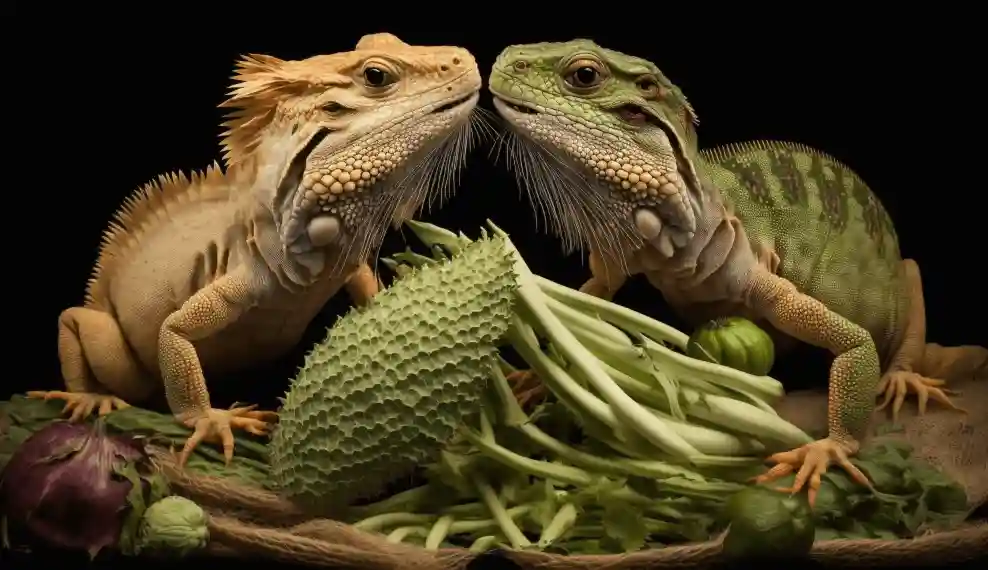
Yes, bearded dragons can eat green beans, including French beans. Green beans are a good source of nutrients and vitamins for bearded dragons. However, it is advisable to only feed them raw as cooking can cause the loss of nutrients and vitamins.
can bearded dragons eat uncooked green beans?
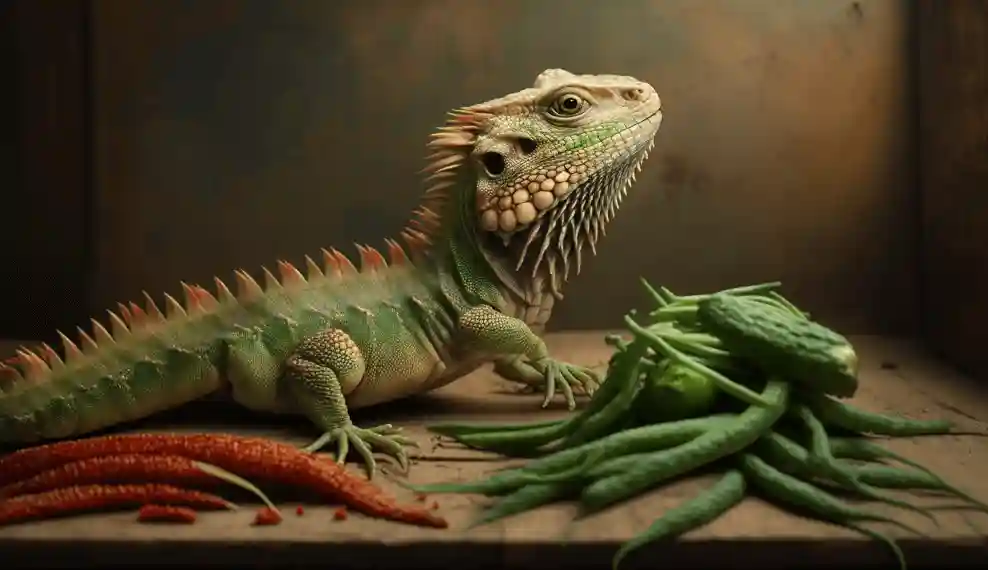
Yes, bearded dragons can eat green beans. According to various sources, raw or cooked green beans are safe for bearded dragons to eat as long as they are fresh and free from any added ingredients or fertilizers. However, it is advisable to only feed them raw green beans as cooking can cause the loss of nutrients and vitamins.
can bearded dragons eat green beans from a can?
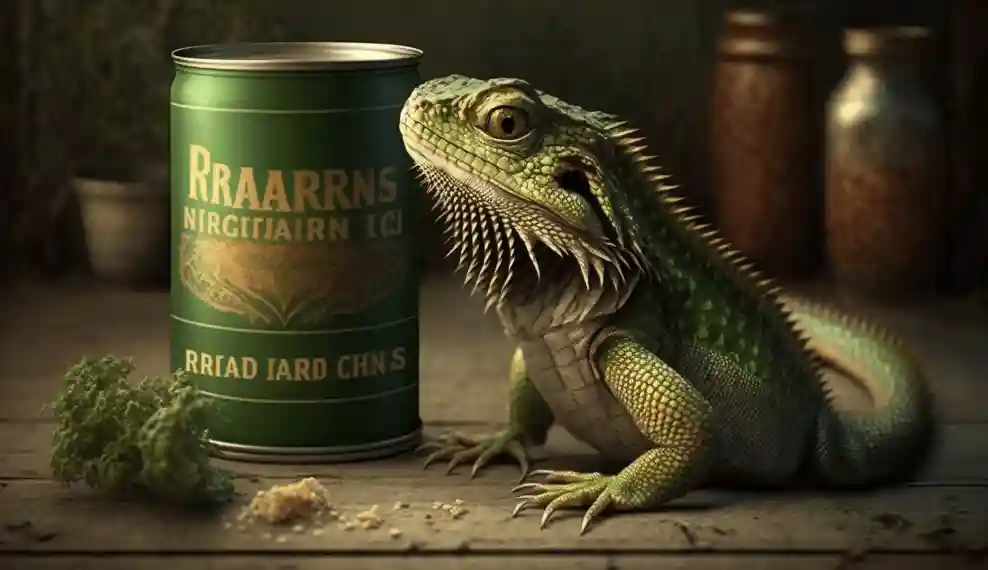
Yes, bearded dragons can eat green beans from a can. According to various sources, green beans are safe and healthy for bearded dragons to eat, whether they are raw or cooked. However, it is advisable to only feed them raw as cooking can cause the nutrients and vitamins to break down.
can bearded dragons eat mung beans?
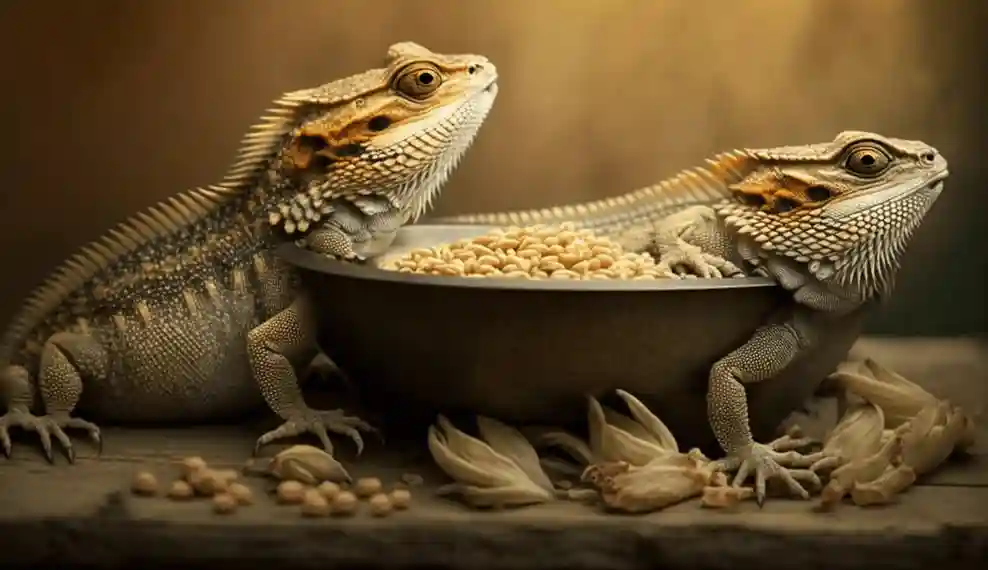
Yes, bearded dragons can eat mung beans on an occasional basis in moderation[1]. Mung beans are a type of bean sprout that bearded dragons can consume as they are omnivores and can eat plant-based food.
It is important to note that mung beans should only be fed occasionally as they do not offer a lot of nutritional value and have a poor calcium-to-phosphorus ratio.
can bearded dragons eat runner beans?
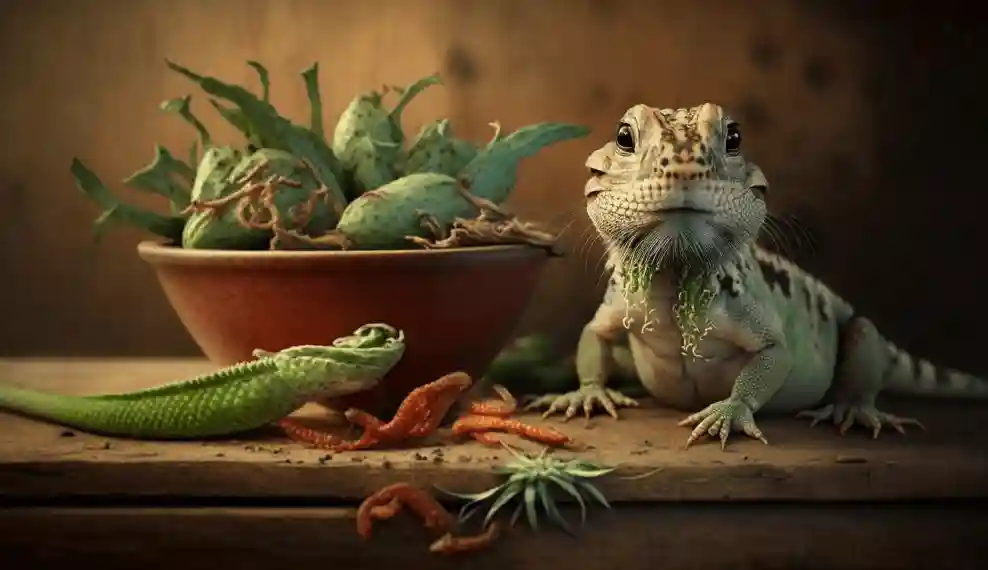
Bearded dragons can eat green beans, including runner beans. However, they should only be fed occasionally and in small amounts. It is recommended to feed them raw and chopped up into small pieces. Green beans are a good source of nutrients for bearded dragons, including beta-carotene and vitamin B.
can bearded dragons eat soybeans?
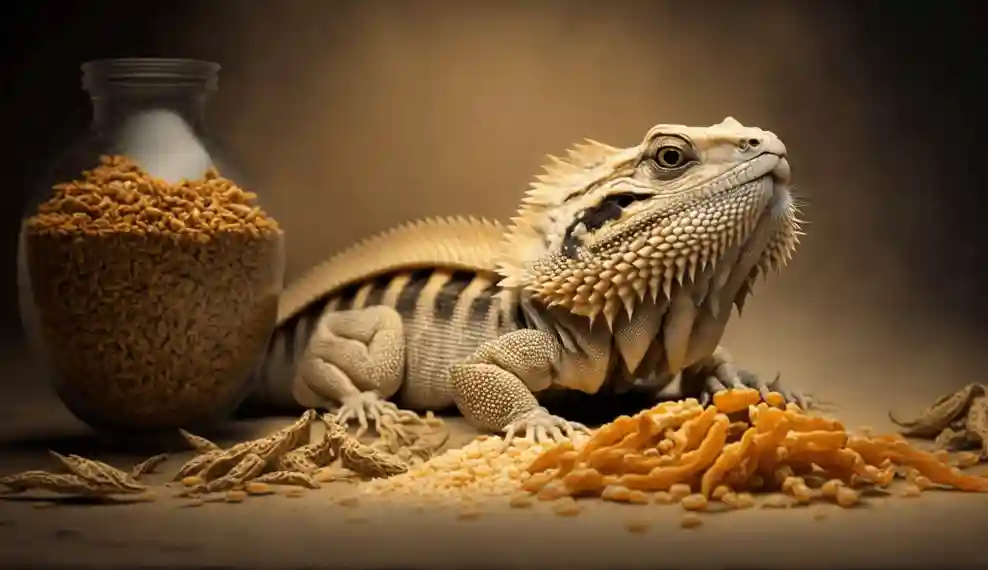
No, bearded dragons should not eat soybeans. These beans contain high levels of phytoestrogens and are not suitable for bearded dragons.
In addition to soybeans, there are many other foods that should be avoided when feeding a bearded dragon. These include some processed meats such as hot dogs, tuna, and ham, as well as canned fruits and vegetables.
Frequently Asked Questions
What Is The Best Way To Introduce New Foods To My Bearded Dragon?
The best way to introduce new foods to your bearded dragon is to do so gradually. Start by offering a small amount of the new food alongside their regular diet. If they do not try it, remove it after a few minutes and try again in a few days.
If they do eat it, gradually increase the amount and variety of new foods each week, while still offering their regular diet. As they become more familiar with the new food, they may eat it more eagerly.
How Do I Know If My Bearded Dragon Is Getting Enough Nutrition?
The best way to know if your bearded dragon is getting enough nutrition is to keep track of its weight and health. You can do this by weighing your bearded dragon at least once a month and observing any changes in its behavior, appetite, and energy level.
Be sure to provide your pet with a balanced diet of vegetables, fruits, and insects as well as providing supplements as needed. You should also take your bearded dragon to the vet regularly for check-ups.
Is There A Difference Between Canned And Fresh Beans For Bearded Dragons?
Yes, there is a difference between canned and fresh beans for bearded dragons. Canned beans are usually cooked and may contain added salt or preservatives, which is not ideal for bearded dragons. Fresh beans are usually a better option as they are free from additives and have more nutritional value.
Are There Any Long-Term Health Risks Associated With Feeding My Bearded Dragon Beans?
Yes, there are long-term health risks associated with feeding your bearded dragon beans. Beans are high in carbohydrates and can cause digestive issues, such as gas, bloating, and constipation.
Some beans, such as kidney beans, can be toxic in large quantities and can lead to digestive distress and other serious health issues. It is important to properly cook beans before feeding them to your bearded dragon and to only feed them in moderation.
Is It Necessary To Feed My Bearded Dragon Supplements In Addition To His Regular Diet?
Yes, it is important to feed your bearded dragon supplements in addition to his regular diet. Supplementation is important for bearded dragons because it helps to ensure that the animal is getting the proper vitamins and minerals needed to maintain good health. It is also important to feed your dragon a varied diet that includes fresh vegetables, fruits, and insects.
It is important to provide your bearded dragon with supplements that are specifically designed for reptiles. The supplements should contain calcium and other vitamins and minerals, such as vitamins A and D3, that are important for the dragon’s health.
Make sure to read the label of any supplement you buy to ensure that it is the appropriate type for your dragon. It is important to speak with a qualified veterinarian before providing any supplements to your dragon, as they can provide guidance on the proper dosage and frequency of supplementation.
